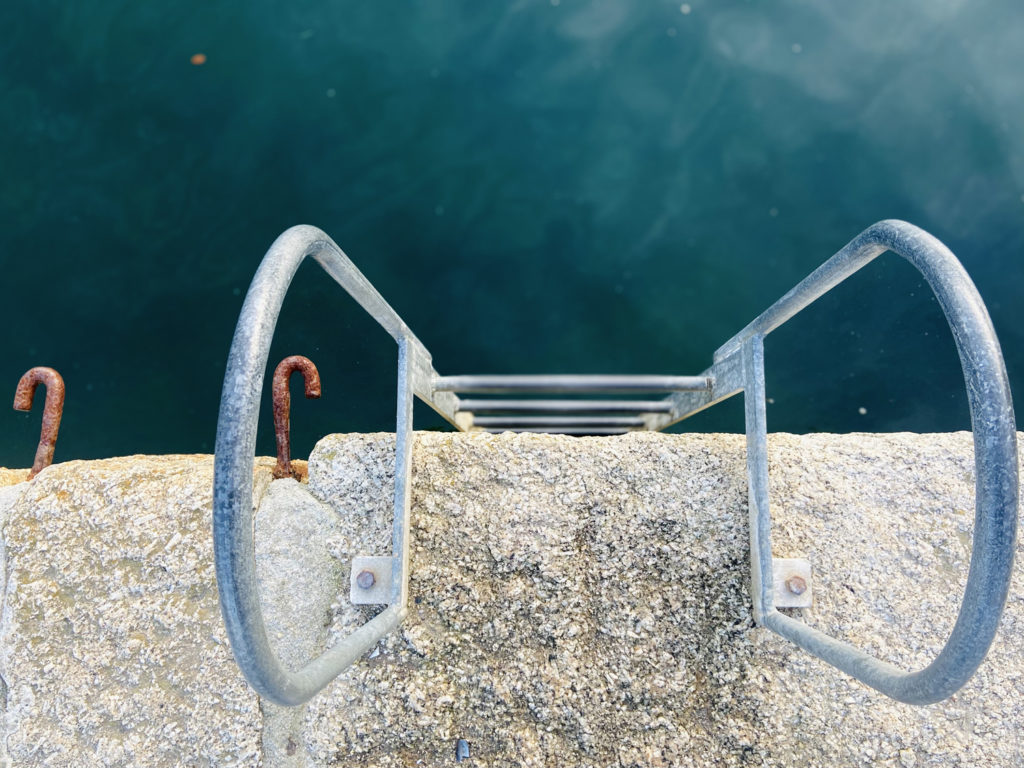It’s that time of year again when things start to get icy. The majority of us hit the outdoors insulated from head to toe in warm cosy numbers. However some amongst the crowd, will be stripping off into nothing but swimmers and heading for a cold water swim. Whilst many could think of nothing worse, there’s a myriad of benefits associated with a cold dip in the sea.
I’m a regular surfer and am happy heading for a slide in the icy months of winter, clad in my thick wetsuit. But when it’s been a few weeks devoid of good waves. I’m craving time in the sea, a sea swim will have to suffice. Whilst I enjoy a swim, I’m not acclimatized like many of cold water wonder women in town. So when I take a sporadic dip I’m filled with trepidation and resistance.
My standard swim experience goes like this:
I stand tentatively on the slipway, a favoured swim spot for us salty souls of Newquay. As I edge closer to the water and dip my toes in the sea a swarm of thoughts cloud my head. “It’s freezing. I can’t do this. Why am I doing this? It’s ridiculously cold! How do people do this everyday? I want my sofa and warm coffee” etc.
Lo and behold I slide into the water, engage with my breath (attempting not to alarm surrounding dog walkers with any squeals escaping my mouth) and immerse myself in a blanket of cold. I breathe intensely, my body feeling like it’s being attacked by pins and my little toe starts to cramp (it always seems to happen). But as the minutes pass, although they feel like hours, I sink into a gentle rhythm of stroke, gliding through the water. It is neither cold or warm, I feel in perfect equilibrium with the ocean.
After about ten minutes, I crawl back out. A rush of heat charges through my body. I feel energetic, spritely and all round pretty good! The rest of my day is spent buzzing on the high of this swim. Wow, I’m going to do this everyday!
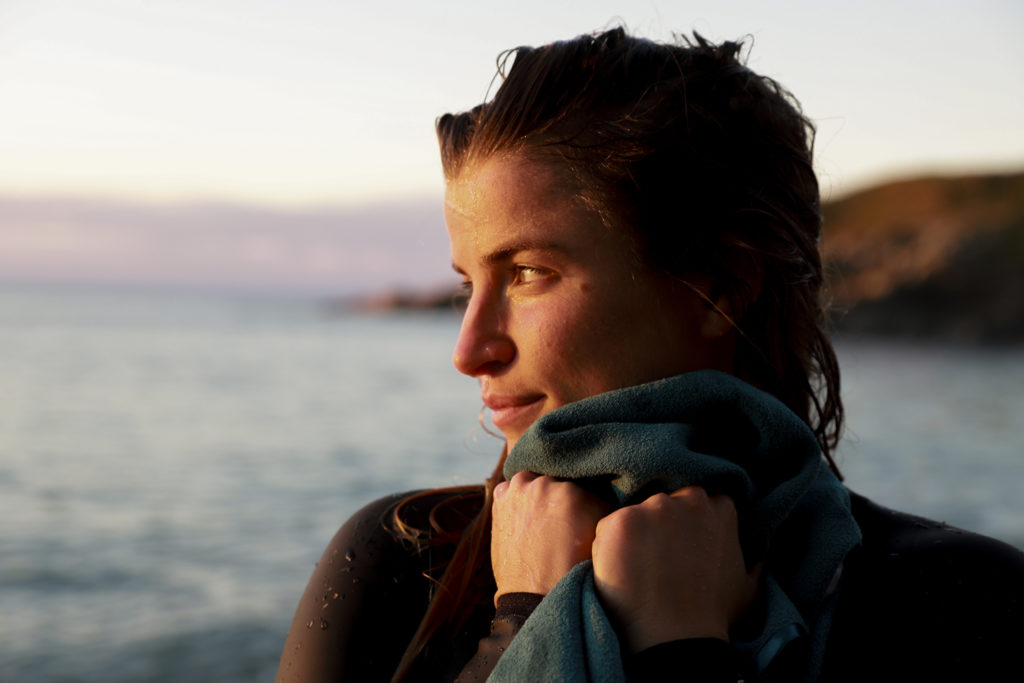
Reaping the benefits of cold water swimming is not a new phenomena, In 400BC Hippocrates claimed cold water swimming relieved his fatigue [1]. In the UK it peaked in popularity in the 18th century with the introduction of the bathing suit [1]. However, recent studies and science has uncovered why exactly cold water swimming is so good for us and arguably caused a resurgence in popularity for this pastime.
So before you shudder away from cold water swimming, take a moment to consider why it could offer better health, improved mood and wellbeing. We explain these below.
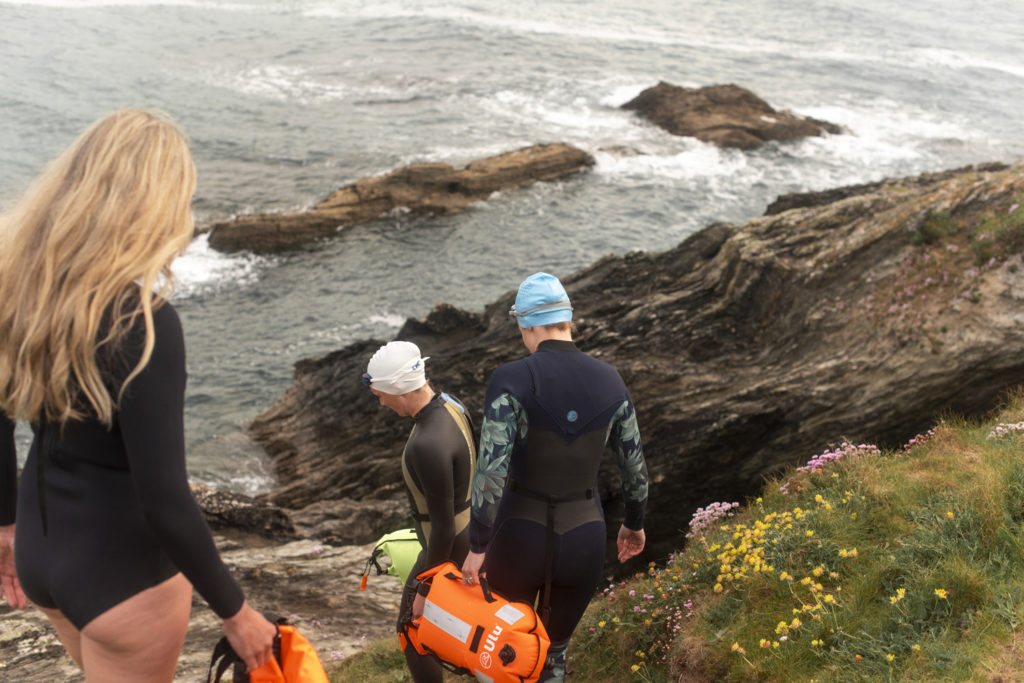
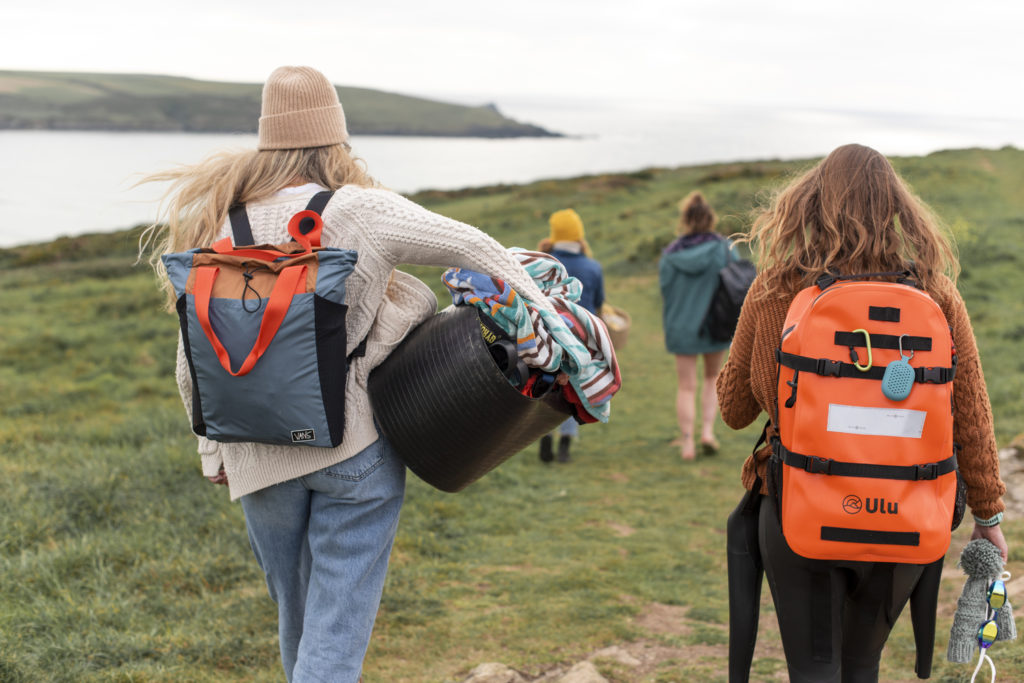
The benefits of Cold Water swimming explained
Improves your Cardiovascular Health
Cold water swimming has been found to lower blood pressure, when its incorporated regularly into a routine. In lowering blood pressure, we lower our risk of developing cardiovascular diseases like heart attacks and strokes [2]. You can also improve your cardiovascular health by swimming, its a great full body workout!
Has an antidepressant effect / Mood booster
Cold water swimming has antidepressant effects and evidence of improved general wellbeing, increased energy levels and better memory and cognition. [5,6]. This is because being in cold water releases endorphins in response to experiencing stress. Endorphins are the chemicals responsible for improving pleasure, relieving stress and pain. It also boosts the feel good chemical dopamine which is why many of us report feeling really great after a swim!
Supports your immune system
Cold water swimming is a great immune system booster. Some studies have shown that water swimmers suffer fewer and milder respiratory infections and illnesses including the common cold [3,4]. Cold water exposure also releases leukocytes into our bloodstream, a blood cell that helps fight disease and infection [7].
Boosts your Metabolism
Being in the cold boosts your metabolism as your body needs to burn more energy to keep you warm. The basal metabolic increase also means you’ll continue to burn more calories after your swim! Not only does metabolism get boosted but cold water swimming increases insulin sensitivity as well as a reduction in insulin secretion and resistance [8]. Insulin is the hormone that controls our blood sugar levels. Increasing sensitivity improves insulin resistance and the risk of many diseases such as diabetes.
It’s a fantastic way to meet new people and socialise
Many times, I’ve pootled down to the harbour for a solo swim and been greeted by other cold water fanatics out for their daily dip. Normally, I strike up conversations with my fellow swimmers and they welcome me to join their group for a swim. In Newquay, we’re lucky to have a number of cold water swimming groups that meet daily. If you’re looking to get involved in your local community and meet new people then swimming is a powerful medium to do so! You can even join us on a swimming weekend in 2023, where you’ll meet and swim with like minded individuals and improve your ocean confidence.

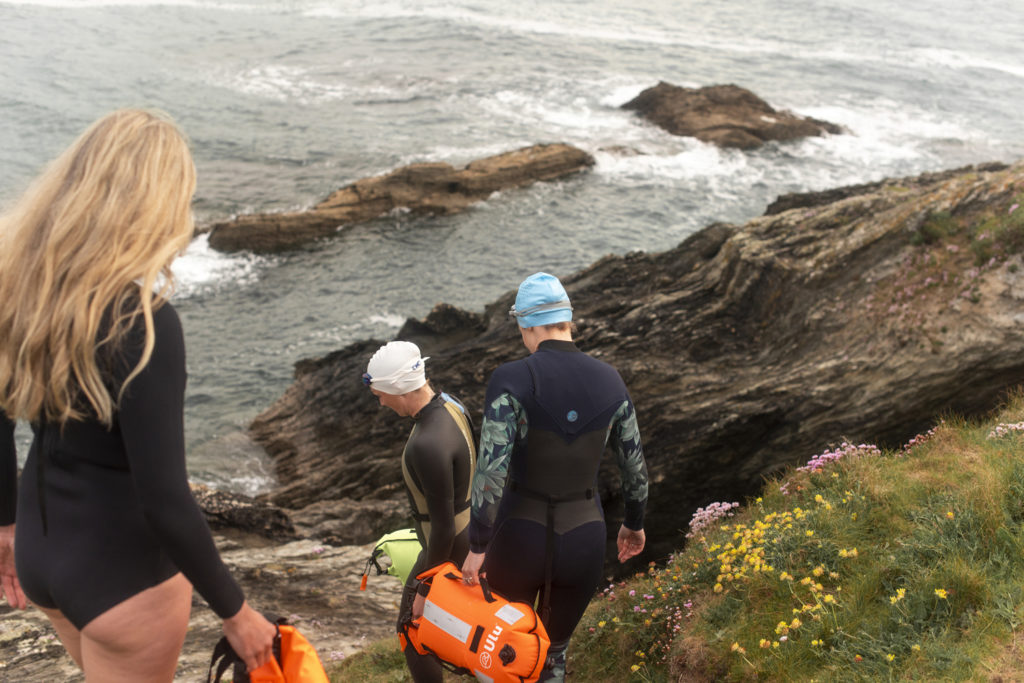
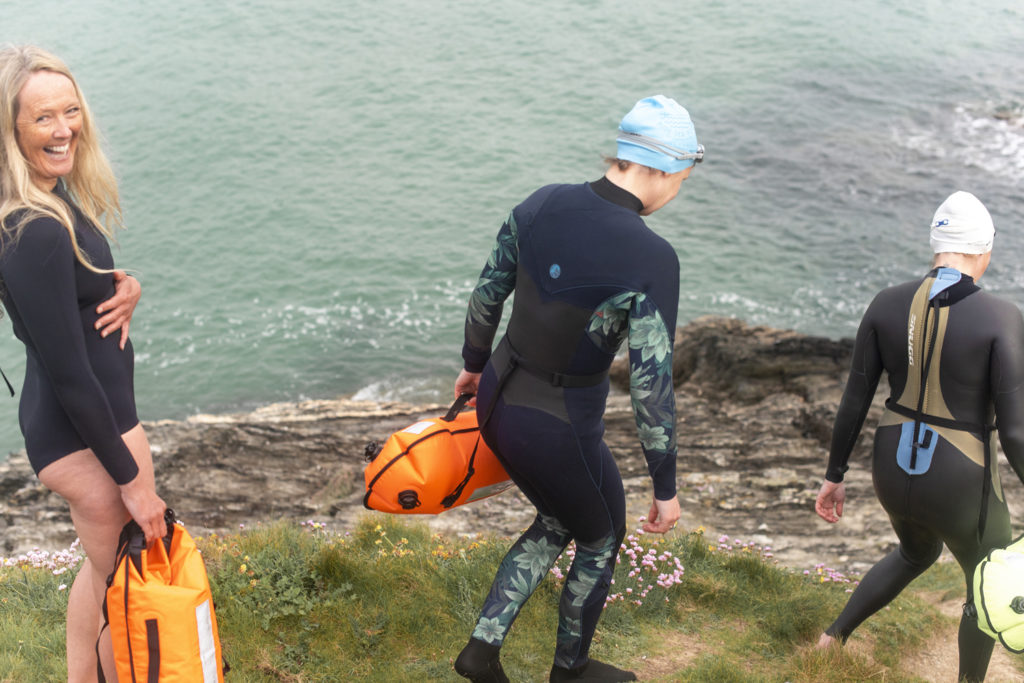
Tips for Cold Water Swimming
If you want to experience the feel good factor for Cold Water swimming yourself, here are a few tips for you to best prepare and be safe when swimming.
Get in slowly
You may lean towards the “get it over and done with” mentality which can lead to a quick hop skip and a jump straight into the sea. However, this can be dangerous and may induce cold water shock. Cold water shock is caused by a sudden immersion in cold water below 15 degrees C and causes restricting of the blood vessels, increasing blood flow resistance. It can cause heart attacks, even in relatively young and healthy individuals [9].
We recommend walking into the water slowly and connecting with your breathing. Not only is this very meditative, it helps you adjust and observe your breathing pattern which can increase and become unrhythmic in response to cold immersion.
Take a friend
There’s nothing better than heading to the seas with a friend. Not only are they your accountability buddy and fellow cheerleader but also someone who will look out for you and vice versa.
Make it a short dip
As a general rule when you start to feel comfortable with the sea temperature and feel warm it’s time to get out. Whilst we have explored the benefits of cold water swimming, overexposure to the cold can come with health risks like hypothermia. I normally stick to about 5-10 minutes maximum in the winter.
Always listen to your own body and don’t stay in for extra time because someone else is.
Dress appropriately
Get your favourite pair of swimmers out and ready to go! Consider a pair of neoprene boots and/or gloves if you find you struggle with circulation. I have a tendency to get cramp in my toes when I swim in cold water so I have to opt to wear boots in the colder months. If you want to keep your head above water, wear your beanie in. If you’re in need of a new swimsuit, check out our guide to 5 Sustainable Cornish Swimwear Brands.
Having said that, if you still want to get in the sea for a swim but are not quite ready for a swimsuit, get your wetsuit out! Whilst you might not experience the full range of benefits mentioned above, a swim in the sea whatever you wear will still have mood boosting effects. Wear a wetsuit if staying in for longer than 10 minutes.
Getting in the cold water is hard so any small comfortable adjustments you can make might make it a tad more enjoyable.
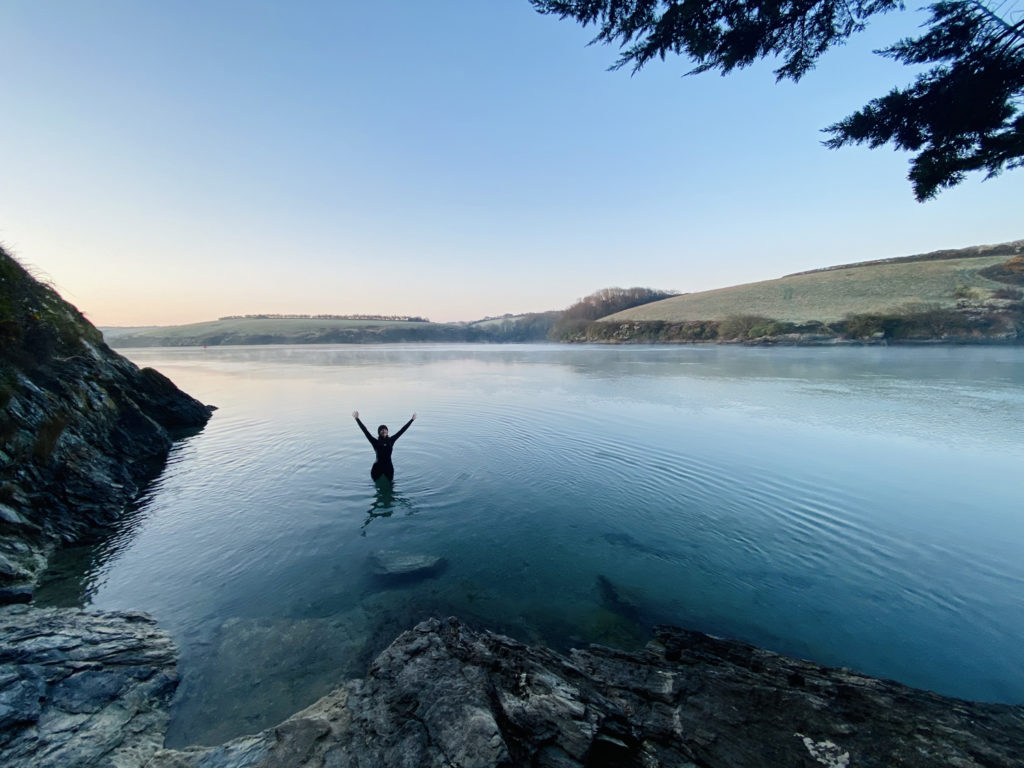
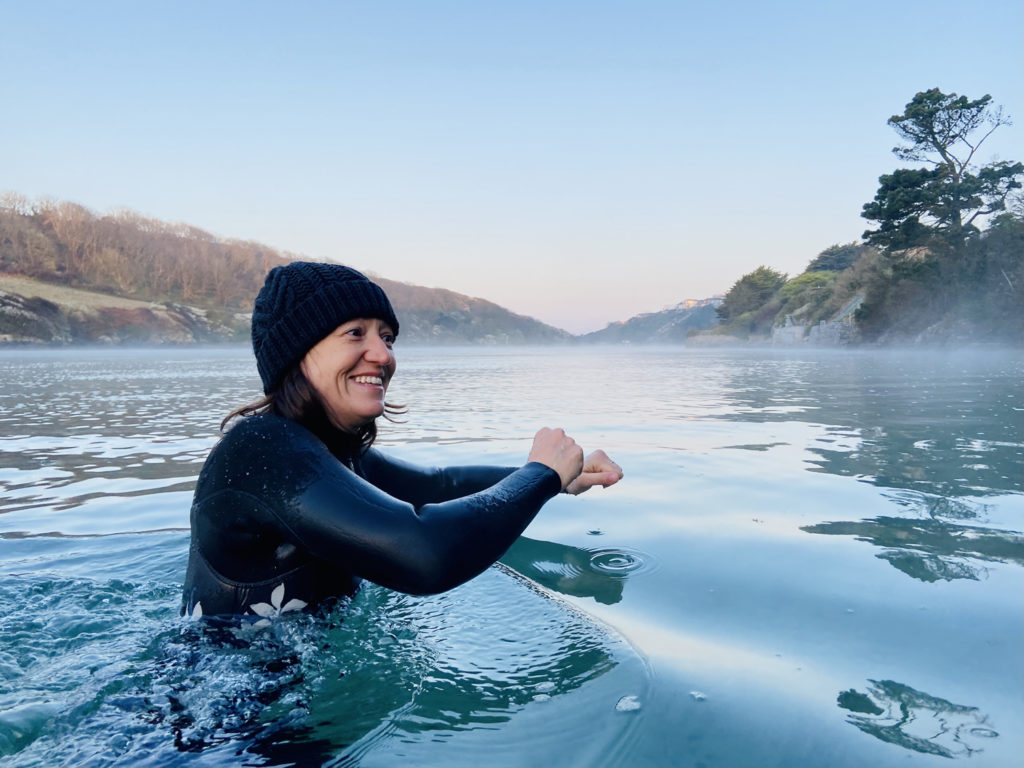
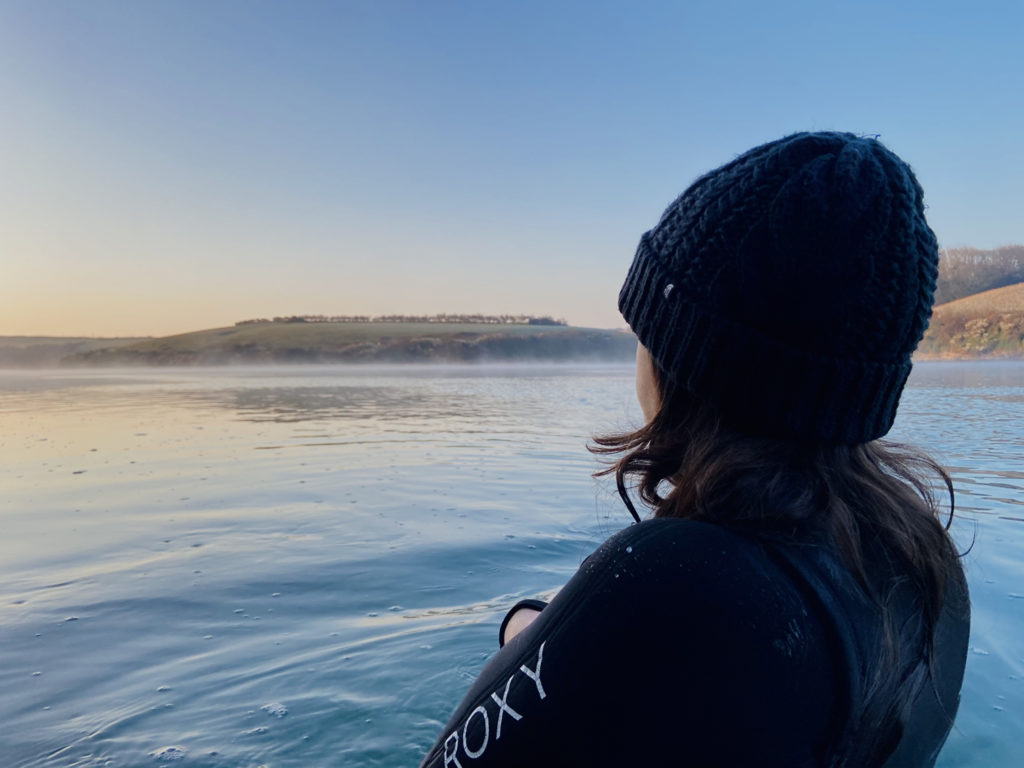
Have warm clothes and a flask at the ready
Dryrobes, fluffy socks, beanies, tracksuit, thermals…. Once you’re out of the water you may feel a surge of heat with your circulatory systems in full action keeping you warm. However, in winter the air temperature is low and you may find yourself cooling down rapidly. Wrap up in warm clothes for the journey home and a bring a flask of something warming too!
Check in with a GP first
If you have medical issues or are unsure if cold water swimming is safe for you, consult your GP or trusted healthcare professional. Whilst we can sing about the benefits of cold water swimming, we recognise everyone is different and it might not be the best option for you.
Swim Safety
If you’re heading somewhere new or off the beaten track, know the hazards of the swim spot. If by the coast, you can check in at a local surf shop who will tell you about the hazards of local beaches. Factor in tides, currents, wind, swell, rocks, marine life and depth of sea bed.
If in doubt, stick to a well known accessible beach that is lifeguarded. If you’re going out of lifeguard season, know the safety procedures you need to follow if you get into trouble.
Always know your entry and exit points into the water before you get in and keep yourself visible to others in the water should you need to attract the attention of someone. We recommend to dip/swim with a tow float for visibility, check out our friends at Uludrybags for some great options.
If you’re keen to try out swimming in the sea but don’t know where to start, you can join us on a Swim Sistas Swim Weekend in 2023. Designed for all abilities to get you confident with open water sea swimming.
References
- Tipton M.J., Collier N., Massey H., Corbett J., Harper M. Cold water immersion: Kill or cure? Exp. Physiol. 2017;102:1335–1355. doi: 10.1113/EP086283. [PubMed] [CrossRef] [Google Scholar]
- Huttunen P., Lando N.G., Meshtsheryakov V.A., Lyutov V.A. Effects of long-distance swimming in cold water on temperature, blood pressure and stress hormones in winter swimmers. J. Therm. Biol. 2000;25:171–174. doi: 10.1016/S0306-4565(99)00059-5. [CrossRef] [Google Scholar]
- Brenke R. Winter swimming—An extreme form of body hardening. Therapeutikon. 1990;4:466–472. [Google Scholar]
- Siems W.G., Brenke R., Sommerburg O., Grune T. Improved antioxidative protection in winter swimmers. QJM Mon. J. Assoc. Physicians. 1999;92:193–198. doi: 10.1093/qjmed/92.4.193. [PubMed] [CrossRef] [Google Scholar]
- Van Tulleken C., Tipton M., Massey H., Harper C.M. Open water swimming as a treatment for major depressive disorder. BMJ Case Rep. 2018;2018 doi: 10.1136/bcr-2018-225007. [PMC free article] [PubMed] [CrossRef] [Google Scholar]
- Lindeman S., Hirvonen J., Joukamaa M. Neurotic psychopathology and alexithymia among winter swimmers and controls—A prospective study. Int. J. Circumpolar Health. 2002;61:123–130. doi: 10.3402/ijch.v61i2.17444. [PubMed] [CrossRef] [Google Scholar]
- Lombardi G., Ricci C., Banf G. Effect of winter swimming on haematological parameters. Biochem. Med. 2011;21:71–78. doi: 10.11613/BM.2011.014.
- Gibas-Dorna, M.; Checinska, Z.; Korek, E.; Kupsz, J.; Sowinska, A.; Krauss, H. Cold Water Swimming Beneficially Modulates Insulin Sensitivity in Middle-Aged Individuals. J. Aging Phys. Act. 2016, 24, 547–554. [Google Scholar] [CrossRef]
- https://rnli.org/safety/know-the-risks/cold-water-shock
